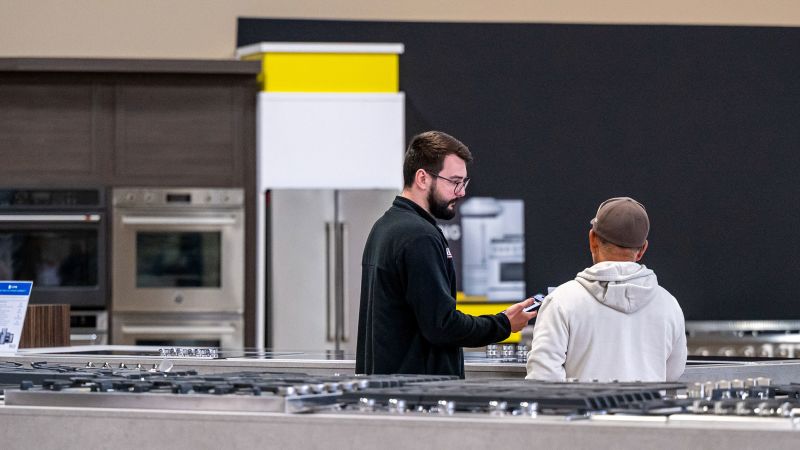CNN
—
American consumers, battle-scarred by the pandemic and the subsequent surge in inflation, are already changing their spending patterns and delaying some purchases due to President Donald Trump’s chaotic tariff policy and the broader economic uncertainty, new survey data shows.
The shift in spending plans was among the findings from tax and audit firm KPMG’s second annual American Perspectives survey released early Thursday. The survey of 2,500 adults sought to evaluate their personal financial situations as well as how they were adapting to changing forces in the economy, including new tariffs, the rise of generative artificial intelligence and the role of higher education.
The survey was conducted between April 3 and April 23 — a period that followed Trump’s April 2 announcement of a new slew of massive tariffs and a later pause of dozens of those tariffs. The survey period was before the recent de-escalation of the US and China trade war.
Survey respondents indicated plans to hold off on some major purchases and scale back in other areas of their lives in order to not accumulate debt, according to KPMG.
“Seeing them go through the Covid cycle and into this new cycle, they’re quickly adapting to their spend-smart initiatives as they look at their personal finances and ways to control costs and how they evaluate major purchasing decisions,” Matt Kramer, KPMG’s US products line of business leader, told CNN in an interview.
“I think it took a little bit long the last cycle (the pandemic) where they just weren’t quite used to making those major adjustments, and maybe the cost of money was a little bit cheaper back then,” he said.
But now, consumers appear to be signaling they have little appetite to incur new debt and are hunkering down more quickly.
About 68% of respondents said they did not want to take on any more credit, according to the report. And many respondents surveyed by KPMG indicated they intend to cut back on purchases both large and small: 43% said they will delay buying a car because of tariffs, and 70% said they already were or planned to use free ad-supported TV as an alternative to ad-free streaming services.
“They’re clearly looking at opportunities to save,” Kramer said. “They’re switching providers where it makes sense, whether that’s their streaming services, whether it’s looking at insurance providers.”
Beyond tariffs and personal finances, KPMG’s survey showed that GenAI is playing an increasing role in people’s personal and work lives. About 45% of respondents said GenAI is having a significant impact on their day-to-day personal life as well as their professional life, up from 41% and 40%, respectively last year.
The survey also showed that perceptions have shifted around higher education and that half of respondents said a degree is no longer essential for a well-paying career.
“Apprenticeship, technical training and looking at how technology is advancing and how you can accelerate your skills much more quickly, all of that is playing in to those responses,” Kramer said.

